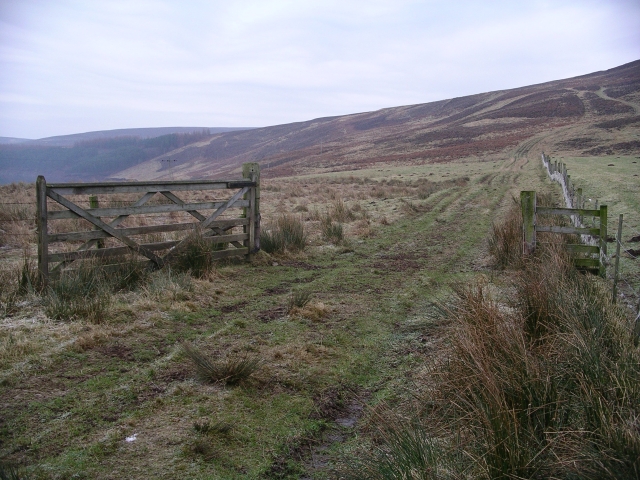Two-Hundred-Year-Old Memories of Dunbar? August 15, 2013
Author: Beach Combing | in : Modern , trackbackBeach did a horrible thing yesterday and made fun of the supposed oral transmission of information across four millennia. Even at New Grange that sort of thing seems unlikely. But he does have a lot of sympathy with the possibility that stray details might make it through two or three centuries in a rural community, with strong family traditions. Take this beautiful instance.
Many years ago among the uplands of Lammermuir I made the acquaintance of an old maiden lady, Miss Darling of Priestlaw, who with her bachelor brothers tenanted a farm which their family had held for many generations. In the course of her observant and reflective life she had gathered up and treasured in her recollection the traditions and legends of these pastoral solitudes. I well remember, among the tales she delighted to pour into the ear of a sympathetic listener, one that went back to the time of the Battle of Dunbar.
Dunbar, 1650, stands as a black mark against Scotland. Essentially with Cromwell surrounded and limping the Scots, under Leslie, failed to wipe ‘the Protector’ and his dreadful army out. The account continues:
We know from his own letters in what straits Cromwell felt himself to be when he found his only practicable line of retreat through the hills barred by the Covenanting army, and how he wrote urgently to the English commander at Newcastle for help in the enemy’s rear. It has usually been supposed that his communications with England were kept up only by sea. But the weather was boisterous at the time, and a vessel bound for Berwick or Newcastle might have been driven away from land. There is therefore every probability that Cromwell would try to send a communication by land also.
All this is reasonable enough and we come to the problem of oral transmission.
Now the tradition of Lammermuir maintains that [Cromwell] did so. The story is told that he sent two soldiers disguised as natives of the district to push their way through the hills and over the border. The men had got as far as the valley of the Whiteadder, and were riding past the mouth of one of the narrow glens, when a gust of wind, sweeping out of the hollow, lifted up their hodden-grey cloaks and showed their military garb beneath. They had been watched, and were now over-taken and shot. Miss Darling told me that tradition had always pointed to some old whin-bushes at the opening of the cleugh as the spot where they were buried. At her instigation the ground was dug up there, and among some mouldering bones were found a few decayed buttons with a coin of the time of Charles the First.
This was published by Geikie in 1905 and refers to ‘many years’ before: 1850 let’s say. Dunbar was fought in 1650. For two hundred years a rural community had to remember that a couple of outsiders were killed in violent circumstances and buried there. Of course, we don’t have a guarantee that the story was really told beforehand. But the fact that Miss Darling was the source of the story and the person who ordered that the bushes be dug add to the chances that this is all true. The only thing that Beach has problems with is that the locals hadn’t troubled to rifles the spies’ pockets: there was a coin there. Any other examples of reliable oral transmission: drbeachcombing AT yahoo DOT com
2 Sept 2013: Neil Howlett writes: My website is about place names; I find that there is tendency to elaborate or invent post facto explanations, especially romantic ones. These can often be shown to be impossible, and fail to take into account the documented original source of the name. This happens commonly with x’s Grave names, which can be shown to record the burials of suicides but for which more interesting explanations get written. I can accept the transmission within one family over 200 years; that’s not many generations to associate a secret burial with a location. That doesn’t mean the whole story is true. If the Scots found two messengers from Cromwell surely they would have tried to take them alive and take them to local clan/military leader, dead or alive. I also suspect they wouldn’t have wasted the material (coins, clothes, buttons etc). They might well have buried quickly and quietly a deserter or soldier found dead of exposure or injuries, because doing anything else was risky whichever side prevailed. The detail about the wind blowing a cloak aside is to romantic; that’s straight out of Sir Walter Scott. Thanks Neil!



